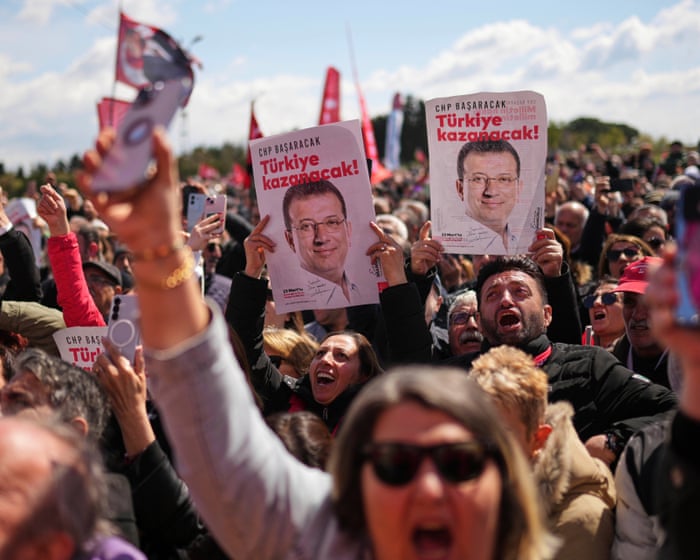In the West, we once excelled at playing dirty, especially during the Cold War. Today, we’ve ceded gray-zone tactics and hybrid warfare to Russia, which is prevailing in the disinformation battle. Europe’s commitment to following the rules could be democracy’s weak spot.
The Berlin Airlift illustrates what we were once adept at but have since neglected. The Cold War essentially began and concluded in Berlin, marked by the 1948–49 airlift and the fall of the Wall in 1989. The airlift was the largest relief operation by air in history, supplying Berlin after Stalin attempted to expel the Western allies. Alongside this, the West utilized radio broadcasts like RIAS (a forerunner to CIA-backed Radio Free Europe and Radio Liberty) and bolstered soft power through cultural initiatives, such as British performances of Shakespeare amidst the ruins and educational programs via American libraries and courses.
However, disinformation was the West’s most powerful tool. The allied airlift cost what would be nearly $3 billion today and required a compelling story to gain public backing. This narrative, which many still accept, claimed that Berlin was blockaded, its land routes cut off, and its women and children facing starvation.
But the truth is, while there was an airlift, there was no Berlin blockade. Documents from 1948 in the UK’s National Archives reveal that the Foreign Office stated, “the blockade of Berlin is NOT a siege,” and that Germans could move in and out to get food, for instance. A media campaign, however, promoted “a massive and sensational story of air power applied to humanitarian ends.” U.S. Secretary of State George C. Marshall urged via telegram to “utilize to the utmost present propaganda advantage our position,” emphasizing Soviet responsibility for the “threatened starvation of the civilian population.” This story was so effective it became a lasting Cold War myth, still taught to British students today.
Was it right to mislead the public in 1948–49? No. Did it secure full support in the UK and U.S.? Yes—it even helped Harry Truman win an unexpected re-election that November.
Since then, what have we learned and unlearned? European democracies take pride in being more truthful than Russia (and the U.S.), believing that transparency, facts, and evidence build trust. Western media must rise above rumors and bots, and Russia’s actions are troubling enough without exaggeration.
Yet, our strategies could be more robust. We’re losing the information war to Russia because the tools we relied on during the Cold War, many from the airlift era, are fading away. Radio stations and news agencies broadcasting to Eastern Europe are under threat: Trump tried to defund Radio Free Europe and Radio Liberty. UK ministers are criticized for being “asleep at the wheel” regarding soft-power funding cuts, like those to the British Council. Germany’s Goethe Institut is also seeing its funds reduced. In the U.S., the Global Engagement Center, established in 2016 to combat disinformation, was shut down by Trump earlier this year.
EU bodies such as the European External Action Service and the East StratCom Task Force focus more on monitoring threats than taking offensive measures. As the Royal United Services Institute warns, the West has failed to develop a meaningful response or enhance public outreach to counter Russian disinformation efforts.
Russia is winning hearts and minds not only in Europe but also in the Global South. Through troll factories, cyber-attacks, deepfakes, and fake news—like claims about dirty bombs and bioweapons in Ukraine—they sway public opinion in regions where the West has lost moral authority. Putin labels the West…He calls their tactics a “dangerous, bloody, and dirty game,” but he’s projecting. That’s the game he’s playing.
What would playing dirty actually look like? It would mean acting with the same determination and courage that helped the West stand up to Stalin—and win. It would involve taking decisive actions like the EU’s 2022 suspension of Russian propaganda outlets RT and Sputnik, or the US Cyber Command’s 2018 strike on the Internet Research Agency, a Russian troll factory, to prevent election interference. It would mean working with hacktivists, since we seldom hear about Western cyber successes against Russia, possibly because they operate more quietly.
Concerns about escalation and retaliatory attacks on critical infrastructure are valid. But while Russia sends threatening drones to test Europe’s borders, we spend our time worrying instead of pushing back.
What we’ve lost most since the airlift—when the US and UK first poured money, information power, and military strength into Europe during peacetime—is our mojo. We stood up to Stalin with remarkable resilience and a powerful, if not entirely accurate, narrative. It’s good that we’ve become more truthful, but not that we’ve lost our fighting spirit. Many now seem too tired and disillusioned to defend the benefits of democracy.
That’s why, in the realm of (dis)information, the Russians can confidently claim, “We’re winning.”
Joseph Pearson is a historian who teaches at the Barenboim-Said Akademie and New York University in Berlin. His book, “The Airlift,” is available in the UK and will be released in North America as “Sweet Victory” in December.
Frequently Asked Questions
Of course Here is a list of FAQs about the topic framed in a natural conversational tone with direct answers
BeginnerLevel Questions
1 What does this statement even mean The West once held a monopoly on playing dirty
It means that for a long time Western nations were seen as the most dominant and effective at using aggressive tacticslike espionage propaganda and political manipulationto achieve their international goals
2 How is Moscow outmaneuvering the West now
Russia is now using these same tactics often more effectively They use cyberattacks spread disinformation on social media engage in political meddling and use energy supplies as a political weapon often catching Western democracies offguard
3 Can you give me a clear example of this
A key example is the 2016 US election interference where Russian groups used social media to spread divisive content and hack emails to influence public opinion Another is using Europes dependence on Russian natural gas to pressure countries politically
4 Why is the West allowing this to happen
Western democracies are often slower to respond because they are bound by laws public scrutiny and a free press Authoritarian regimes like Russia can act more quickly and without these constraints giving them an advantage in these gray zone conflicts
IntermediateLevel Questions
5 What specific dirty tactics is Russia using that the West isnt
Russia has been particularly effective with
Hybrid Warfare Blending conventional military force with cyberattacks disinformation and funding of political extremist groups
Weaponizing Interdependence Using global economic connections against other countries
Plausible Deniability Conducting operations through proxies or in ways that are hard to directly trace back to the Kremlin
6 What are the main weaknesses in the Wests approach that Russia exploits
Russia exploits the Wests open societies political divisions and reliance on digital infrastructure They target social media to amplify existing political and social conflicts making democracies fight with themselves
7 Isnt the West still doing these things too Whats the difference
Yes Western nations still engage in espionage and cyber operations The key differences are often in scale intent and restraint Russias campaigns are



